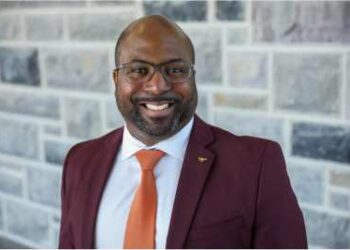An anti-Trump rally in California (Photo Credit: Fabrice Florin/Flickr).
By James S. Bridgeforth, Ph.D.
It is nothing short of astonishing that the President of the United States has proclaimed a horrific plane crash was due to diversity, equity and inclusion (DEI).
Every time he makes such a statement, the translation is clear: people of color, women, LGBTQ+ individuals and those with disabilities are not equal, are not capable and should not have the same rights and opportunities as people like him.
Let’s call this what it is—not mere ignorance but a fundamental misunderstanding of privilege and power that seeks to dismantle the progress we have fought so hard to achieve.
Racism, much like a terminal illness, continues to afflict this nation. If left unchecked, it will spread until it destroys the very fabric of American democracy. The greatest crisis facing this country is not inflation, the economy or even national debt—it is the unfinished work of social justice.
History has proven that when Americans move beyond fear-mongering rhetoric and engage in meaningful dialogue about social justice and diversity, they overwhelmingly agree that these principles are essential. And yet, despite more than 60 years since the Civil Rights Act and nearly two centuries since the Emancipation Proclamation, true freedom remains elusive for many.
The African American community continues to bear the brunt of systemic racism, discrimination and inequality. Women, too, remain marginalized. A century after securing the right to vote, women in the so-called “greatest democracy in the world” still cannot make fundamental decisions about their own bodies. This is an authoritarian overreach more akin to regimes we criticize than to the American ideals of liberty and justice for all.
Our Latino brothers and sisters face a particularly cruel betrayal.
Despite overwhelming rhetoric against them, Latino men voted for Trump in significant numbers. Yet, just weeks into his presidency, many legal Latino Americans are being harassed, detained and torn from their families simply because they don’t “look American.” No white person in this country would ever face such a mass purge based on appearance alone. This is not just policy—it is dehumanization.
And what of the white suburban women who voted for Trump despite his openly misogynistic campaign?
The same women’s rights movement they benefited from has been set back decades. Now, many of these same voters express shock at the policies and rhetoric emanating from the White House. But there is no excuse for ignorance when the consequences were so clearly outlined. We must ask: How did they not see this coming?
So what do we do now?
First, recognize that approximately one in four Americans voted for Trump. That means nearly everyone has a friend, neighbor or family member who supported him. This is not a moment to retreat into partisan trenches—it is a time for constructive conversation. We must talk, not to debate, but to understand, not to accuse, but to connect. The strength of democracy is built on relationships, on the ability to see one another as human beings rather than political adversaries.
For those who regret their vote, there is still time to act.
Democracy is not a one-time event; it is an ongoing commitment. A mistake in the voting booth does not have to be a permanent stain. But action is required—speaking out, showing up and advocating for justice.
And for those on the left, this is not the time to shun those who erred but rather to embrace them as allies in the fight for justice. As the Mississippi Mass Choir reminds us: I ain’t tired yet.
This is the moment to push back, act, organize and protect the values that make this country worth fighting for.
Social justice is not an abstract concept but the bedrock of a just and equitable society. The future of America depends on what we do today.
We cannot afford to sit idly by. We must stand together now and demand the dignity, freedom and justice that every American deserves.

Bridgeforth enjoys writing as a political columnist who is a passionate advocate for justice and equality whose academic journey reflects a profound commitment to these ideals. With a bachelor’s degree in Sociology from Catawba College, Bridgeforth began his quest to understand and address systemic inequalities. He furthered his expertise with a master’s degree in Higher Education Administration from The University of Massachusetts-Amherst, followed by a Ph.D. in Higher Education Administration and Institutional Research from The University of Southern Mississippi.
Beyond his impressive academic credentials, Bridgeforth is deeply involved in organizations dedicated to empowerment and community service, including Alpha Phi Alpha Fraternity, Inc. and 100 Black Men of America. His columns provide insightful commentary on equal opportunity, social justice, economic equity, and higher education, driven by a sincere desire to amplify voices and champion the causes of those often marginalized.
Through his writing, Bridgeforth brings a blend of scholarly rigor and heartfelt advocacy, aiming to inspire change and foster a more just society for all.
